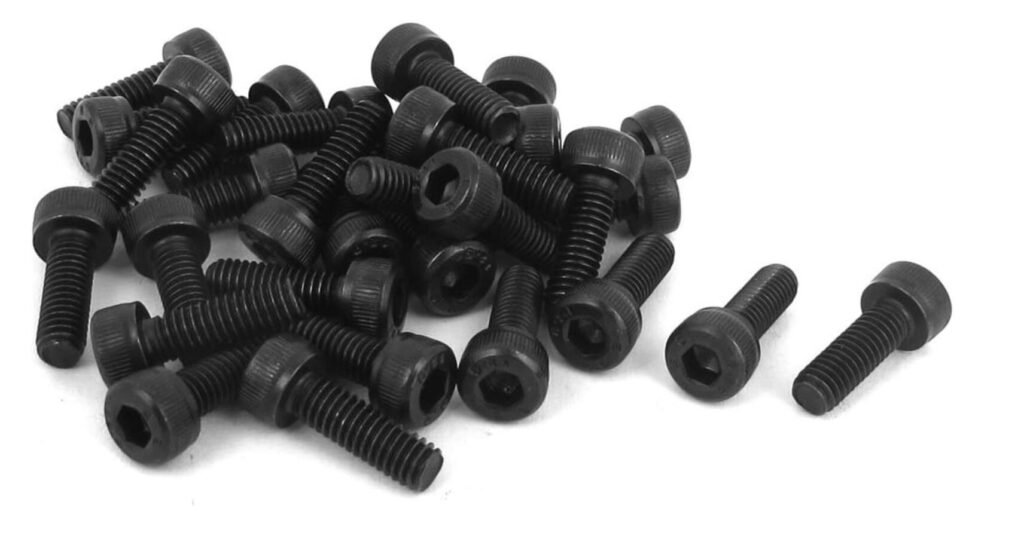Socket cap screws, an integral component in the engineering and construction sectors, are known for their strength and versatility. This article provides an in-depth look at socket cap screws, exploring their design, material options, types, applications, and benefits.

Understanding Socket Cap Screws
Socket cap screws are characterized by a cylindrical head, with a flat top surface. A distinctive feature is the hexagonal recess or socket in the head, which is used to drive the screw with an Allen wrench or hex key. The threads on these screws typically run from the tip up to the base of the head, which aids in ensuring a secure fastening. These screws are especially useful in applications that require a strong clamping force and precision.
Material Selection for Socket Cap Screws
Socket cap screws can be manufactured from various materials, each offering unique properties:
- Carbon Steel: This is the most common material used due to its tensile strength and wear resistance. However, it is not very resistant to corrosion.
- Alloy Steel: By adding elements such as Chromium and Molybdenum, alloy steel screws are more robust and wear-resistant than regular carbon steel.
- Stainless Steel: Socket cap screws made from stainless steel are corrosion-resistant, making them ideal for environments where they may be exposed to moisture or chemicals.
- Brass: This material is primarily used in applications where resistance to corrosion is essential, or electrical conductivity is required.
- Titanium: Known for its high strength-to-weight ratio and corrosion resistance, titanium is often used in aerospace and medical applications.
- Aluminum: Aluminum screws are lightweight and corrosion-resistant but not as strong as steel. They are often used in applications where weight is a critical factor.
Types of Socket Cap Screws
There are several different types of socket cap screws, including:
- Standard Socket Head Cap Screws: These are the most common type and are known for their high strength. They have a cylindrical head and are used in applications requiring a strong clamping force.
- Low Head Socket Cap Screws: These have a lower profile than standard socket head cap screws and are used in applications with limited clearance.
- Flat Head Socket Cap Screws: These screws have a countersunk flat head, allowing them to sit flush with the surface material. They are often used in applications where a smooth surface is required.
- Button Head Socket Cap Screws: With a rounded head, these screws are less conspicuous than standard socket head cap screws, making them ideal for applications where aesthetics are important.
- Socket Shoulder Screws: These screws have an unthreaded shoulder below the head and are used for applications that require rotation or sliding movements.
Application Areas of Socket Cap Screws
- Machinery Manufacturing: Socket cap screws are widely used in the manufacturing of machinery due to their strength and ease of installation and removal.
- Automotive Industry: In cars and other vehicles, these screws are used in engines, bodywork, and interior components.
- Aerospace: The aerospace industry utilizes socket cap screws made from high-strength materials like titanium for aircraft assembly.
- Consumer Electronics: These screws are used in gadgets such as laptops, smartphones, and other electronic devices due to their compact size and precision.
- Construction and Infrastructure: Socket cap screws are used in the construction of buildings, bridges, and other structures.
- DIY and Furniture Assembly: Their clean and aesthetic finish makes them popular in DIY projects and furniture assembly.
Benefits of Using Socket Cap Screws
- High Tensile Strength: Socket cap screws are known for their high tensile strength, making them suitable for applications requiring strong fastening.
- Precision Fastening: The hexagonal recess allows for precise tightening, which is particularly important in applications where the tension must be carefully controlled.
- Clean Finish: Their design ensures a clean and unobtrusive finish, which is aesthetically pleasing in applications where the fasteners are visible.
- Easy Installation and Removal: The use of an Allen wrench or hex key makes installation and removal relatively easy, even in tight spaces.
- Corrosion Resistance: When made from materials like stainless steel or coated with corrosion-resistant materials, these screws can be used in environments where corrosion is a concern.
Conclusion
Socket cap screws are versatile fasteners with applications spanning numerous industries. Their strong clamping force, coupled with the ability for precision tightening, makes them ideal for applications that require robustness and accuracy. Available in a range of materials and types, there’s a socket cap screw for almost any scenario. Whether it’s in machinery, cars, or DIY furniture, the humble socket cap screw is a fastener that you can rely upon.
